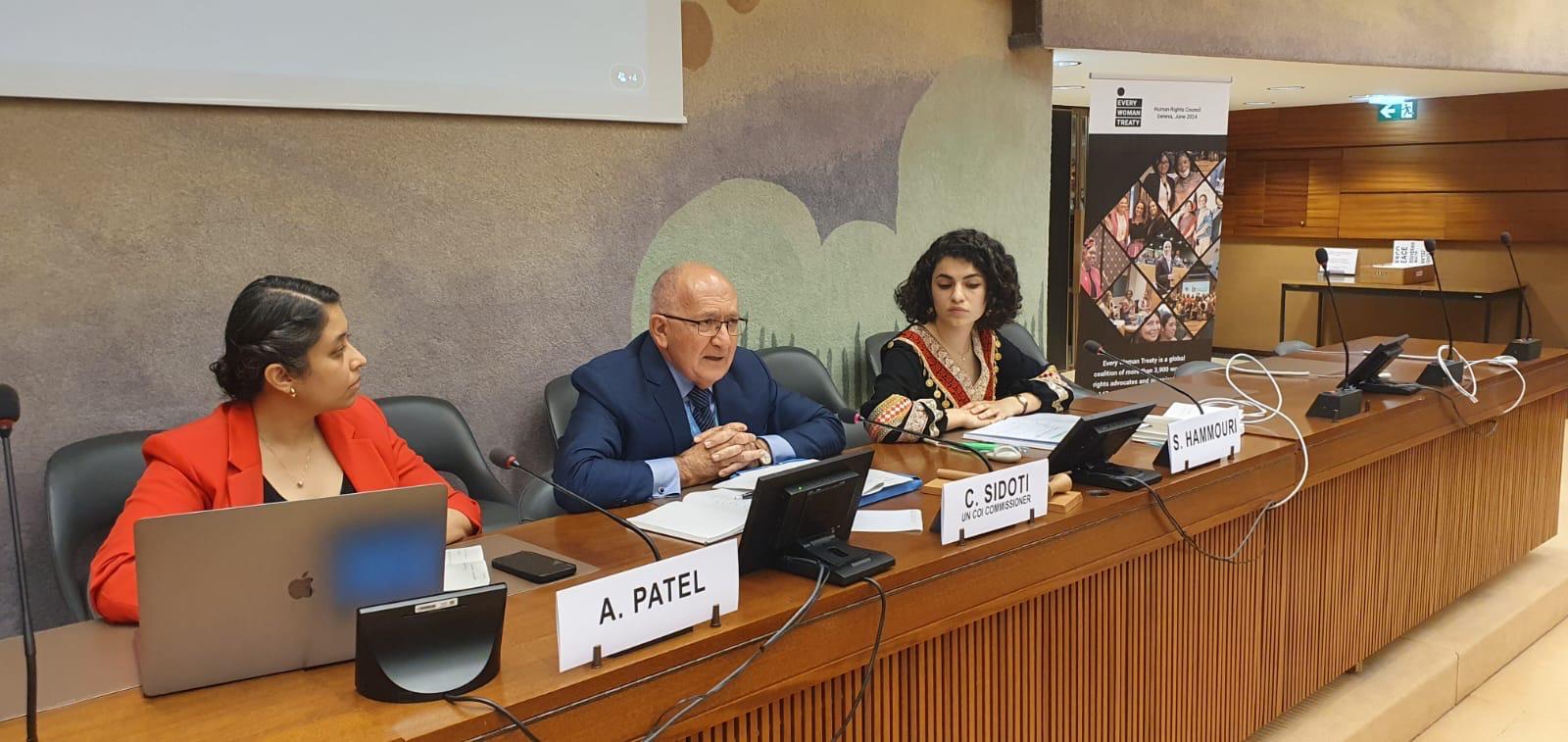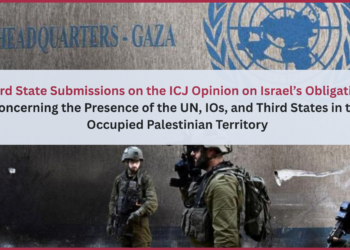Critical Discussion at the Human Rights Council on UN Report: Urging Global Action Against Genocide
Geneva, June 20, 2023 – In a collaborative effort, Law for Palestine, the Independent Commission for Human Rights-Palestine (ICHR), and the Norwegian Refugee Council (NRC) hosted a side event at the Human Rights Council in Geneva, to coincide with the UN Independent International Commission of Inquiry on the Occupied Palestinian Territory, including East Jerusalem, and Israel’s (CoI) report submission to the Council. This event aimed to spotlight the CoI’s findings, address genocide concerns, alleviate civilian suffering, and discuss the global community and third states’ role in implementing international legal resolutions and orders.
As the sole side event during this Human Rights Council session featuring the CoI since its report release, this event provided a crucial platform for discussing the report’s findings. Attendees included representatives from various states and missions in Geneva, such as the European Union, Switzerland, Belgium, and several Arab and Islamic countries, alongside researchers and civil society activists.
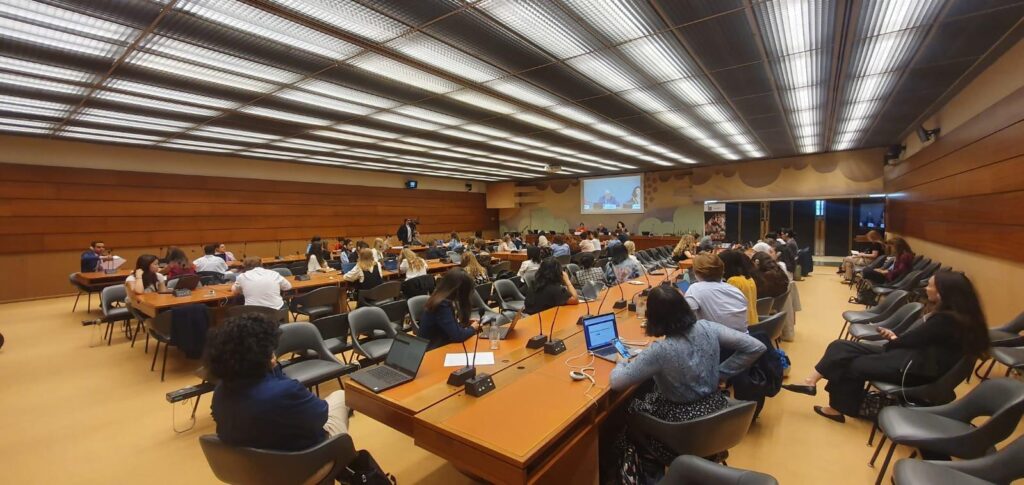
Moderated by Anisha Patel from Law for Palestine, the event featured four panelists: Jamil Sarhan (ICHR Deputy Director for Gaza Strip), Chris Sidoti (UN CoI Commissioner), Itay Epshtain (Senior Humanitarian Law and Policy Consultant at NRC), and Shahd Hammouri (Law for Palestine Senior Advisor and Law Lecturer at Kent University).
Jamil Sarhan: Israel’s Actions in Gaza Constitute Genocidal War Crimes
In his opening remarks, Sarhan highlighted the severe humanitarian crisis in Gaza, stressing the ongoing civilian suffering due to Israeli actions over the past nine months. He presented alarming statistics: over 90,000 civilians injured, 10,000 missing under the rubble, and more than 1.7 million forcibly displaced into overcrowded and unsafe locations. He emphasized that the destruction of critical infrastructure, such as sanitation stations, electricity generators, and water wells, has worsened the dire conditions. These acts, coupled with incitement statements by Israeli leaders, constitute genocidal war crimes under Article 2 of the Genocide Convention.
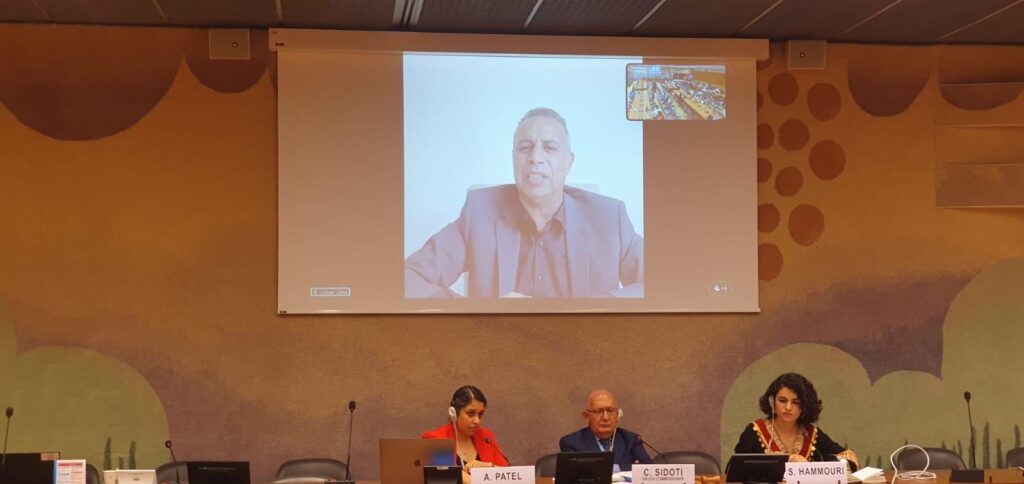
Sarhan also referenced the UN Special Rapporteur’s affirmation that the situation in Gaza amounts to genocide and noted the International Court of Justice (ICJ) conclusion that Israel should take provisional measures to avoid targeting civilians. However, he criticized the recent CoI report for failing to contextualize the root causes of the events of October 7th. Sarhan called for international action, highlighting the responsibility of third states under the erga omnes principle to intervene and end these atrocities.
Chris Sidoti: Investigating War Crimes and Humanitarian Violations
Sidoti highlighted the key findings and challenges faced in the CoI report, noting that the Commission began its investigation on October 7th after the initial reports of escalating violence. Relying heavily on digital information, the Commission collected nearly 10,000 pieces of digital material concerning incidents in Israel, the West Bank, and Gaza. Sidoti discussed the obstacles encountered, including Israel’s denial of entry to the investigation team, communication breakdowns, and power outages in Gaza.
The 200-page report focused on the severe impact of gender-based violence in Gaza and the weaponization of essential resources such as food, water, electricity, and medical care. Sidoti underscored the findings that held Israeli authorities responsible for war crimes, crimes against humanity, and violations of international humanitarian and human rights law. These crimes include extermination, intentional attacks on civilians and civilian objects, murder, using starvation as a weapon of war, forcible transfer, and gender-based violence amounting to torture and cruel or inhuman treatment.
Itay Epshtain: Selective Application of International Law in Gaza
In his speech, Itay emphasized the dire situation in Gaza and the selective application of international law principles, including the laws of conflict. He stressed that relief efforts alone are insufficient and called on the international community, including humanitarian organizations, to take comprehensive action to address the situation in Israel and the Occupied Palestinian Territories, paving the way for human security and peace.
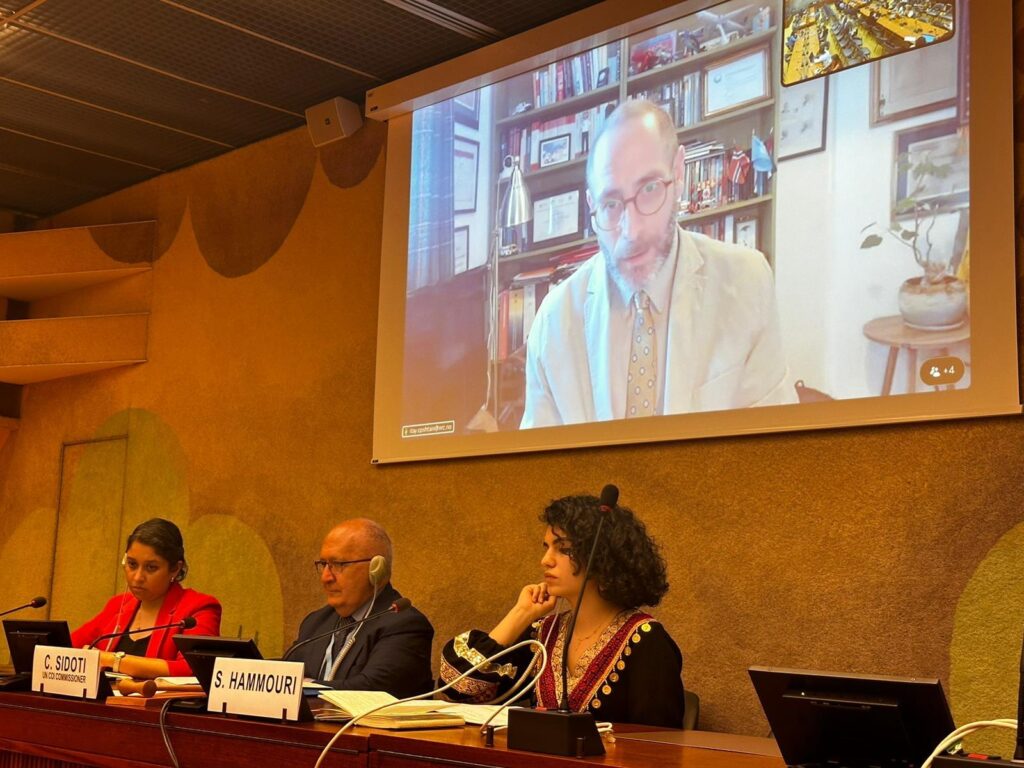
Epsthein underscored that the Human Rights Council should prioritize ending hostilities, preventing further violations of international law—particularly the mass forced displacement of Palestinians and Israel’s acquisition of Palestinian territories—providing reparations for affected individuals, holding perpetrators accountable under international law, and establishing an independent sovereign Palestinian state.
He highlighted alarming statements from Israeli leaders about continuing military operations in Gaza until at least 2025, exacerbating the humanitarian crisis. Itay concluded by urging the Human Rights Council and its member states to strengthen monitoring and accountability mechanisms to uphold international law principles.
Shahd Hammouri: The Urgency of Truth-Telling in Times of Genocide
Shahd Hammouri criticized the CoI for failing to accurately identify and represent atrocities, emphasizing the need for truth-telling during times of genocide. She condemned the UN and the international community for their inability to prevent systematic atrocities in Gaza, drawing parallels to past tragedies in Serbia and Rwanda. Hammouri argued that the CoI failed its mandate by not connecting historical and current events, leading to fragmented narratives that obscure the reality of ongoing genocide. She also criticized the reliance on discredited evidence and the normalization of dehumanizing ideologies, which further legitimize atrocities against Palestinians.
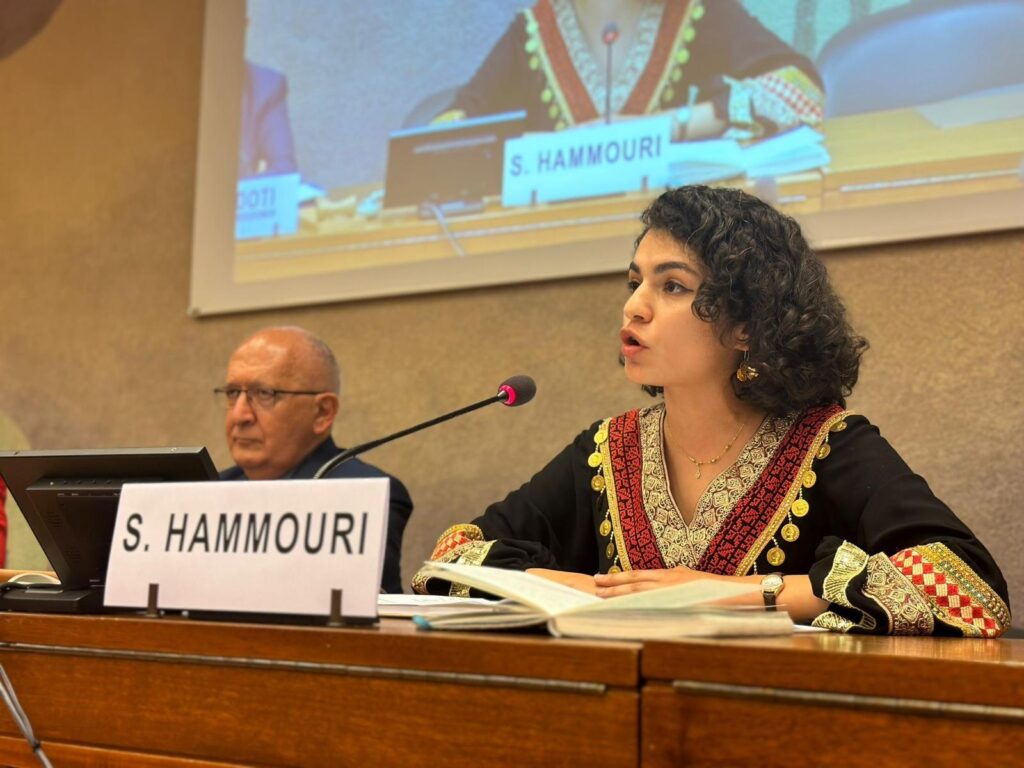
Hammouri highlighted that the report attempts to balance political status quos with the normalization of genocide, supported by major world powers. She called for concrete actions, such as an arms and energy embargo against Israel, to address systemic and structural violations of international law. She pointed out the complicity of powerful states, including the US and European Union, in supplying weapons and maintaining a political status quo that normalizes genocide. Hammouri stressed the international community’s obligation to prevent genocide despite political pressures and urged decisive action to stop the atrocities in Gaza and uphold international law principles.
The event concluded with a discussion on the lack of political will to end the genocide in Gaza, the role of international justice mechanisms, and the strategic use of language in conflicts. Participants examined the reasons behind inaction and the effectiveness of international bodies in addressing such crimes, highlighting the need for a stronger global response.
* For the event’s recording, click here
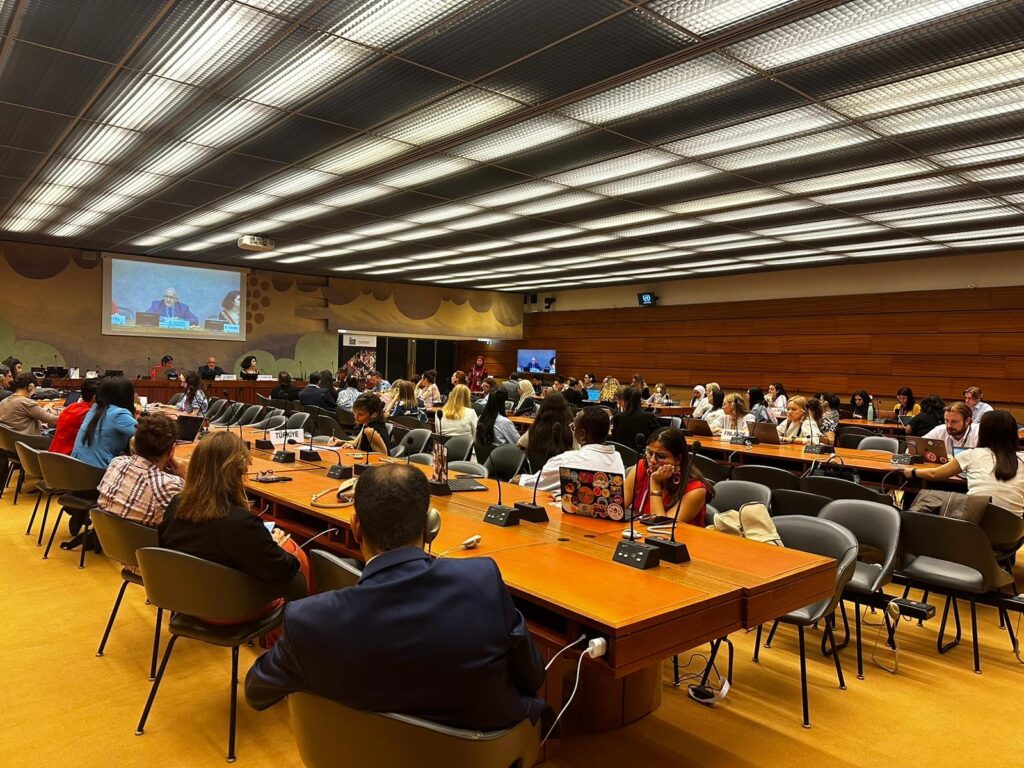
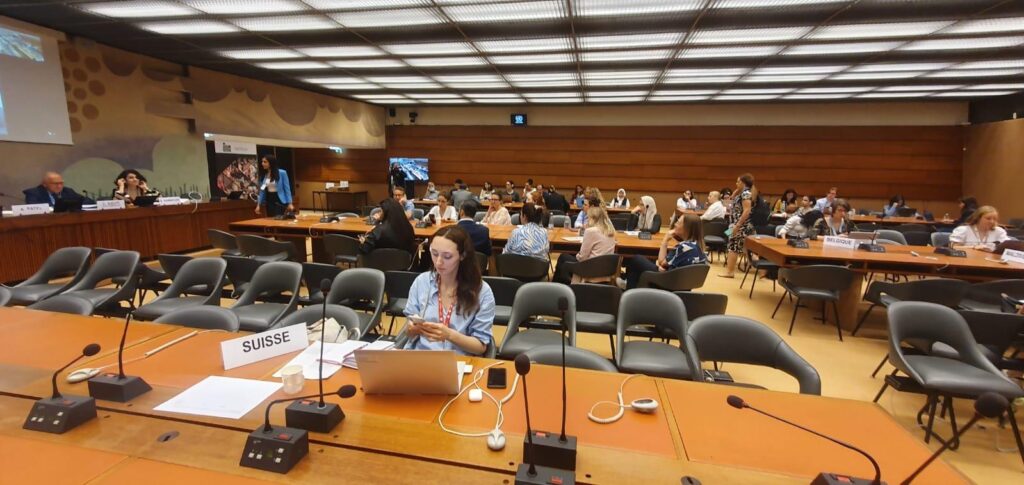
UN Report Action Genocide

